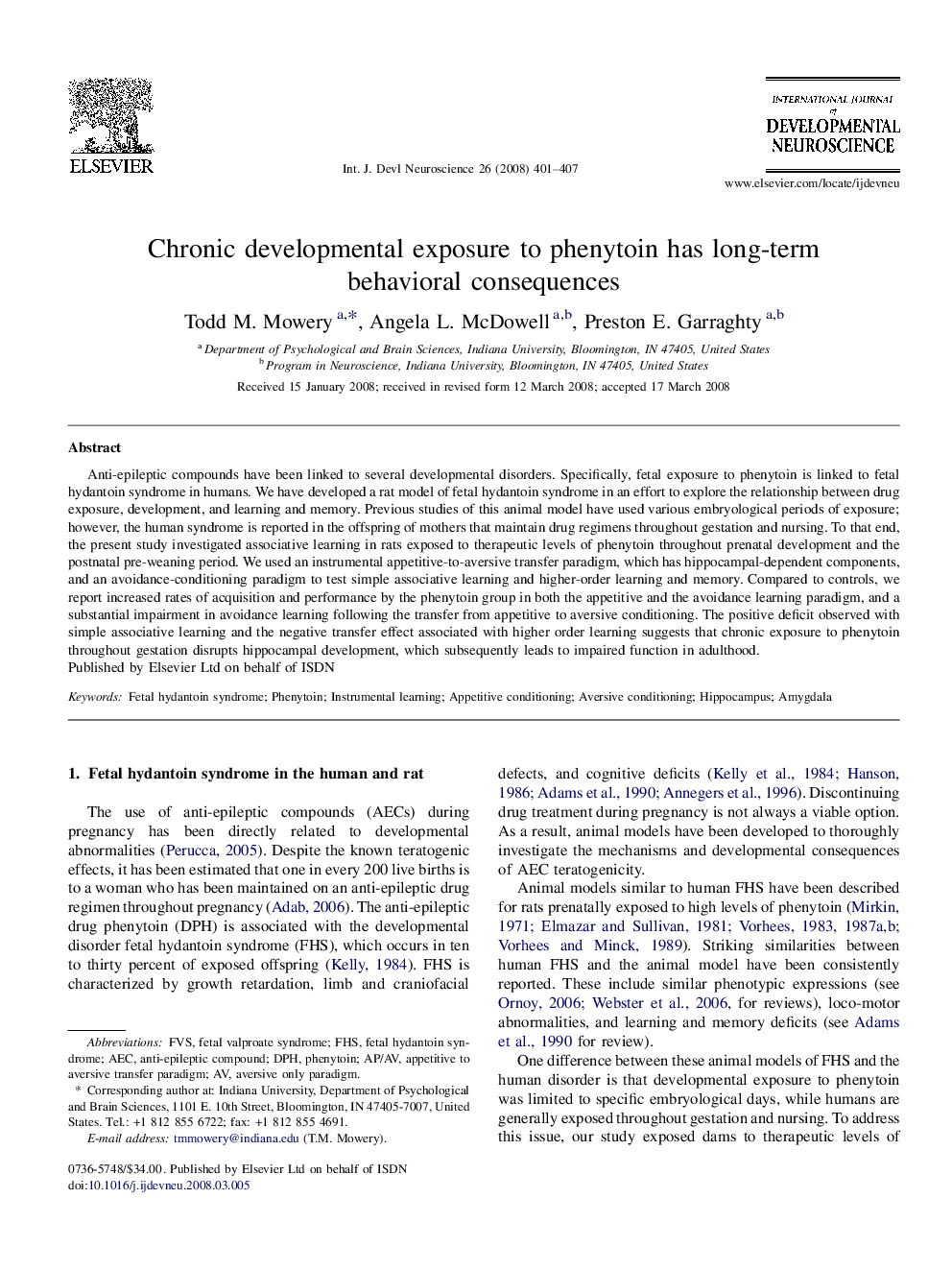| Article ID | Journal | Published Year | Pages | File Type |
|---|---|---|---|---|
| 2786672 | International Journal of Developmental Neuroscience | 2008 | 7 Pages |
Anti-epileptic compounds have been linked to several developmental disorders. Specifically, fetal exposure to phenytoin is linked to fetal hydantoin syndrome in humans. We have developed a rat model of fetal hydantoin syndrome in an effort to explore the relationship between drug exposure, development, and learning and memory. Previous studies of this animal model have used various embryological periods of exposure; however, the human syndrome is reported in the offspring of mothers that maintain drug regimens throughout gestation and nursing. To that end, the present study investigated associative learning in rats exposed to therapeutic levels of phenytoin throughout prenatal development and the postnatal pre-weaning period. We used an instrumental appetitive-to-aversive transfer paradigm, which has hippocampal-dependent components, and an avoidance-conditioning paradigm to test simple associative learning and higher-order learning and memory. Compared to controls, we report increased rates of acquisition and performance by the phenytoin group in both the appetitive and the avoidance learning paradigm, and a substantial impairment in avoidance learning following the transfer from appetitive to aversive conditioning. The positive deficit observed with simple associative learning and the negative transfer effect associated with higher order learning suggests that chronic exposure to phenytoin throughout gestation disrupts hippocampal development, which subsequently leads to impaired function in adulthood.
